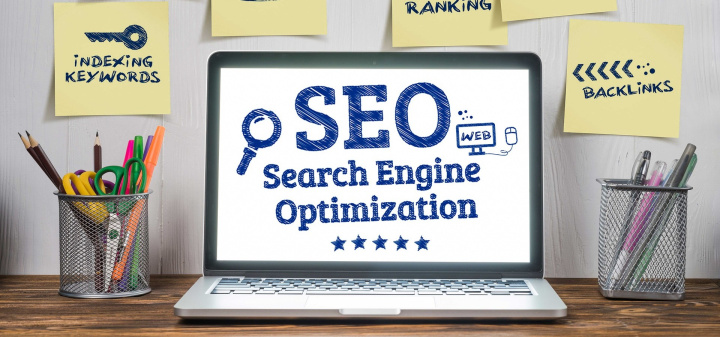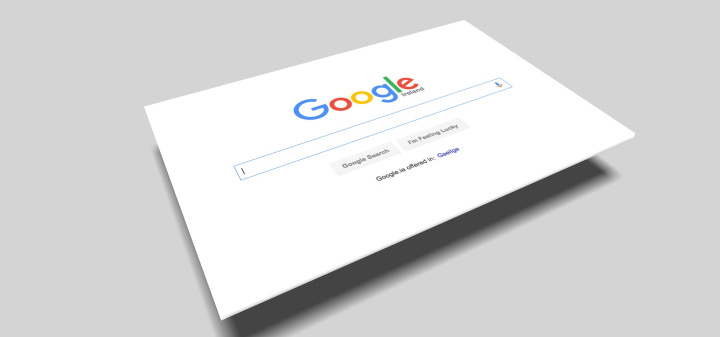5 Simple SEO Rules that are Often Forgotten
Here are some of these rules that often escape the attention of both SEO specialists and marketers and business owners.
Content:
1. SEO is an ongoing process
2. More attention to images
3. Don't forget about speed
4. Follow Google for updates
5. Update old content
6. Conclusion
Search engine optimization (Search Engine Optimization) is a complex art. In order to bring the site to the first positions in the issue, you need to take into account dozens of factors. Not surprisingly, some of them are simply forgotten, and sometimes even ignored.
SEO is an ongoing process
SEO is not a single action, but an ongoing process. Website optimization begins at the moment of its creation and continues throughout its existence. Business leaders need to understand this. On the one hand, they have the right and obligation to require employees to continuously work on optimizing the company's Internet resources, on the other hand, to be prepared that such work requires constant costs.
Getting to the first pages of Google will not happen in a day or a month. But when the result is achieved, this does not mean that the work of SEO specialists is over.
If the technical support of the site stops doing SEO, then after some time the site will take lower positions in the search results. Simply put, it will not be on the first page. But statistics show that about 75% of users stay on the first page of search results. That is, most potential customers simply do not know about the existence of your business. There are also many other problems that come up shortly after a site's optimization is stopped.

After all, the internet is evolving. This means that the rules of the game for those who do business there are changing. For example, the latest Google updates carefully monitor the compliance of sites with the principles of YMYL (Your Money or Your Life). Therefore, content created several years ago should be rechecked for compliance with new trends. The enumeration of such examples of the need for constant work on optimization can be continued, if not indefinitely, then for a very long time.
More attention to images
Images on the site give approximately 2-3% of the total traffic. Properly optimized images have a high chance of reaching the top of the SERP. At the same time, the site itself can modestly remain on the second or third page of the issue.
Search engines do not see images on website pages. But they read the file names given in the Alt and title fields. Feel free to change the meaningless set of letters and numbers in the file name to something informative. Add keywords to image titles.
Apply OpenGraph markup. The content of your site may well be posted on social networks. This will require the correct display of the post in the feed. Without OpenGraph markup, the image may look distorted on the social network - overly compressed or cropped.
Remember that Google Search is implementing a new search algorithm (MUM). It works with all media formats. Refresh Google's guidelines for working with image title and alt fields. Think about how to convey the content of the page to the user through the title and Alt.
Don't forget about speed
Imagine that all SEO techniques are used to promote the site. But the download speed remained unchanged. Will he get to the first position in the search results? Probably not. Slow sites do not like either people or search robots.
Research conducted by VPNMentor shows that if a site loads longer than 3 seconds, then 40% of visitors close it. 80% of visitors (in other words, potential customers) will not return. Search algorithms notice such negative trends and lower the site's ranking. Traffic drops quickly, and with it all the effort put into SEO. Loading speed is especially important for the mobile version of the site.
So watch your speed. Google advises to work on improving the speed if it is lower than 95% of web resources. So, use a dedicated virtual server for better speed and performance. I will also give the load time to focus on (according to Google).
For desktop versions of sites (time is in seconds):
- Good — <1;
- Medium — 1-2.1;
- Bad — > 2.1.
For mobile devices, the requirements are more liberal. An indulgence is made for slow mobile Internet:
- Good — <1.6;
- Medium — 1.6-3;
- Bad — >3.
Follow Google for updates
Let us remind the reader of paragraph 1 of this publication — SEO is a continuous process.
The search giant almost daily makes changes to the rules and algorithms by which sites get to the first places in the search results. Most of them are invisible, do not qualitatively change the work of SEO specialists and do not affect the overall strategy for website promotion. However, you should be aware of the latest developments. Too many unaccounted for little things at some point will begin to affect the results of the work.

Several times a year, significant changes are made to the algorithms and systems. These are called core updates. Google reports such events because their impact on sites is noticeable. Some resources will feel an increase in the number of users, others — a fall. With the negative impact of the update, you need to be ready to take the necessary measures.
In March, the deployment of the Page Experience update was completed. In this case, we are talking about the fact that the ranking algorithm began to pay even more attention to three factors: Core Web Vitals (LCP + CLS + FID), secure HTTPS connection protocol, the number of intrusive interstitial ads. If the site's SEO does not meet the specified parameters, its position in the search results will not increase.
Another example is the Product Reviews Update (March 2022). The essence of the update is that the position of the site in search results is even more dependent on the detail, objectivity and impartiality of product and service reviews published on its pages. Template, monotonous and frankly biased reviews will harm the position of the resource in the issue. Agree, an important argument in order to view the content, once again evaluate the work of journalists and copywriters.
Update old content
An often overlooked step is to go back to the old articles on your site and add links to the new content. Thoughtful rewriting and updating of old publications should be done regularly for many reasons:
- information becomes outdated, and links stop working;
- the accumulated experience allows us to qualitatively improve the existing content. Very often, updating a finished text is much easier than writing a new one. It is enough to divide long sentences into shorter ones, check spelling and grammar, come up with and upload infographics. It is good to add new facts that have become known after publication. Consider adding a FAQ to your post. In the end, just change the post template
- search algorithms like this approach.
Conclusion
The above list of rules is formed on the basis of the author's personal experience and his communication with colleagues and experts. It is quite possible that everyone can supplement it with their own observations. In any case, I want to focus on the first paragraph of the publication. Once again I will say that website optimization should be constant and continuous. At a minimum, SEO should be carried out regularly at some intervals and not look like a one-time campaign.
Do you want to achieve your goals in business, career and life faster and better? Do it with ApiX-Drive — a tool that will remove a significant part of the routine in workflows and free up additional time to achieve your goals. Test the capabilities of ApiX-Drive for free — see for yourself the effectiveness of the tool.

